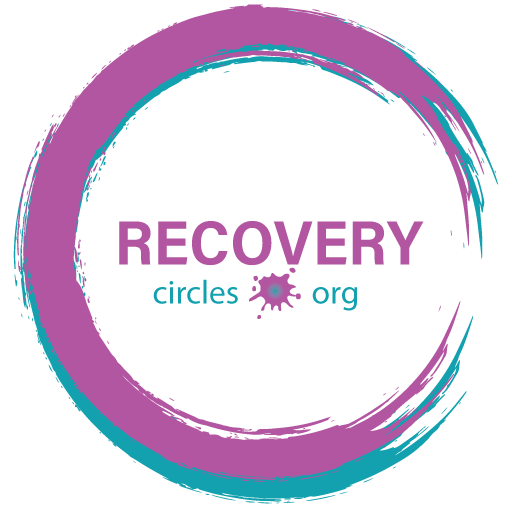Relapse Prevention
Interested in learning more about relapse prevention? Reach out to us or continue reading to discover how relapse prevention plans and supportive therapies work—and how Sober House Philadelphia can help you stay on track in your recovery journey.
You can also call us at (267) 412-3258
Featured In





“
I finally feel like I have a future. These people believed in me when I couldn’t.
– John L.
“
What I found here wasn’t just recovery housing in Philadelphia, it was a group of people who truly cared if I succeeded. They held me accountable and helped me rebuild.
– Tony F.
“
As a single mom, I needed a place I could trust. This affordable sober home in Philadelphia gave me that and more. I’m forever grateful.
– Jasmine T.
See more of our success stories
Recovery can be incredibly challenging—both mentally and emotionally. For many, stopping substance use is not just about willpower; it’s about breaking free from something that once felt familiar or even comforting. That’s why relapse is a real risk in early recovery—and why relapse prevention is such a critical part of the journey.
At Sober House Philadelphia, we recognize that staying sober requires more than just completing treatment. A strong relapse prevention plan is essential for maintaining long-term recovery. Our team works closely with each individual to develop personalized strategies and supportive therapies designed to help navigate triggers, build resilience, and stay on course.
We’re here to ensure that every client has the tools and guidance they need—not just to get sober, but to stay sober.
You can also call us at (267) 412-3258
What Is Relapse Prevention?
Relapse can disrupt even the strongest recovery efforts. For many individuals, especially in the first 90 days of sobriety, the risk of relapse is at its highest. Even after completing treatment and beginning to reintegrate into daily life, triggers and challenges can resurface making continued support essential.
At Sober House Philadelphia, we believe that with the right guidance and structure, full recovery is absolutely possible. That belief is at the core of our approach to relapse prevention.
Our relapse prevention plans are designed to help clients build and strengthen the skills needed to maintain long-term sobriety. These include identifying personal triggers, developing healthy coping strategies, and creating routines that support mental and emotional well-being. While it can take time to adjust to using these tools consistently, we provide compassionate support every step of the way.
Through personalized planning, regular assessments, and one-on-one guidance, we help our clients stay grounded in their recovery while continuing to grow. We understand that relapse is a risk at any stage—and that awareness is what drives the quality of care we provide.
What Type of Relapse Prevention Plan Does Sober Offer?
At Sober House Philadelphia, relapse prevention begins with thoughtful, deliberate planning. A solid prevention plan must serve as both a roadmap and a strategy—offering clear guidelines while also giving us a way to measure progress and adjust when necessary.
Our framework rests on two pillars: support and community. We know that sustained recovery thrives when people feel connected, encouraged, and understood. To foster that sense of belonging, we organize a mix of peer groups, recovery meetings, and community activities—each designed to remind our residents that they’re never walking this path alone.
When clients see themselves as part of a larger recovery community, it’s easier for our team to spot early warning signs. If someone begins to struggle, we can step in quickly—long before a lapse becomes a full relapse.
And if a relapse does occur, it’s not a dead end. We partner with trusted outpatient programs, arrange sober companions when needed, and revise each client’s relapse-prevention plan to strengthen coping skills for both pre- and post-treatment life. Our goal is to support overall well-being, not just abstinence, so every individual feels empowered to stay the course—one day at a time.

Sober Livings

Outpatient Treatments

Individualized Intensive Program

Sober Companions
Cities We Serve
What Is the Best Way to Prevent Relapse?
At Sober House Philadelphia, we understand the immense difficulty involved in preventing relapse. It’s not just about staying clean—it’s about reshaping one’s life through consistent effort, patience, and personal growth. Recovery is a journey, and lasting success comes through steady progress, not perfection.
We believe the most effective way to prevent relapse is by committing to deep, foundational lifestyle changes. The old saying about insanity—doing the same thing repeatedly and expecting different results—holds especially true in recovery. That’s why we work closely with our clients to help them recognize the need for meaningful change in their daily habits, thought patterns, and environment.
Our relapse prevention plans focus on building structure, cultivating emotional resilience, encouraging community connection, and promoting overall well-being. These changes are not always easy, but they are transformative. With the right support, guidance, and accountability, individuals in recovery can create a new way of living—one that empowers them to stay on track and thrive beyond addiction.
Modifying associations – At Sober House Philadelphia, we’ve seen how old friendships can often be tied to addictive behaviors. To support lasting recovery, we help clients distance themselves from relationships that encourage substance use and guide them toward building healthier, more supportive connections.
Altering outing locations – At Sober House Philadelphia, we encourage clients to avoid places that may trigger old habits. Locations like bars or nightclubs can pose a risk, especially in early recovery, so choosing safer, healthier environments is key to staying on track.
Adequate planning – At Sober House Philadelphia, we stress the importance of proper planning in recovery. A clear relapse prevention plan helps clients understand their goals, triggers, and coping strategies—laying the foundation for long-term sobriety.
What Are the Stages of Substance Abuse Relapse?
Relapse doesn’t happen all at once—it builds over time and usually follows a series of stages. At Sober House Philadelphia, we understand how relapse unfolds, which allows us to create meaningful strategies to intervene early and support our clients effectively.
The first stage is emotional relapse, where the person isn’t thinking about using, but their behaviors begin to change. Signs can include skipping meetings, isolating, mood swings, anxiety, and irritability—often tied to post-acute withdrawal symptoms.
Next is mental relapse, where an internal struggle begins. Part of the person wants to stay sober, but another part starts romanticizing past use. This can include cravings, lying, reconnecting with old using friends, or thinking they can “use just once.”
Finally, physical relapse happens when the person begins using again. This step is often the result of unaddressed emotional or mental warning signs.
That’s why we emphasize having a solid relapse prevention plan in place. At Sober House Philadelphia, we incorporate tools like cognitive-behavioral therapy and skill-building to help clients stay grounded, manage cravings, and maintain long-term sobriety.
What Are the Best Therapies and Coping Skills for Early Relapse Prevention?
At Sober House Philadelphia, we recognize that early relapse prevention therapy often focuses on emotional relapse—the stage where the warning signs begin to appear, even if substance use hasn’t resumed. At this point, it’s critical for individuals to recognize the shifts in behavior, acknowledge their emotional state, and take steps to avoid high-risk situations. Whether it manifests as anxiety or isolation, the key is to act quickly. Techniques like relaxation, reaching out for help, and re-establishing healthy routines can make all the difference.
Our supportive, community-based environment is designed to intervene before emotional relapse progresses. Regular meetings provide safe, judgment-free spaces where clients can share openly and find strength through connection. We also emphasize mentorship as a powerful form of support—many mentors in our community have walked a similar path and offer both understanding and accountability.
When necessary, we also incorporate therapies like cognitive behavioral therapy (CBT), which helps clients challenge negative thought patterns and build healthier coping strategies. Most importantly, no one at Sober House Philadelphia is left to face these challenges alone. Every client is encouraged to share, reflect, and grow with the full support of a recovery-focused community—because healing happens together.
Why Relapse Prevention Fails?
Relapse prevention is not just a clinical process—it’s a commitment to long-term behavioral change, and that requires more than a set of rules or occasional check-ins. At Sober House Philadelphia, we focus on fostering emotional resilience, self-awareness, and ongoing self-reflection. We believe that when individuals are empowered to understand their own triggers, stressors, and responses, they are better equipped to manage them in real-world situations.
Consistency is another core part of our approach. Too often, people relapse not because they don’t want sobriety, but because their recovery routine becomes inconsistent. Daily structure, accountability, and support systems are essential to staying on track. That’s why we offer regular check-ins, community activities, and mentorship programs—to help residents build sustainable routines and stay connected to their recovery goals.
We also understand that life outside of treatment can feel overwhelming. Returning to work, rebuilding relationships, or facing the pressures of everyday life can increase the risk of relapse. Our programs are designed to bridge that gap, offering clients the tools they need to navigate challenges confidently. We help clients create practical plans for dealing with stress, setbacks, and emotional lows—without turning to substances.
Importantly, we know that setbacks don’t define anyone. If a relapse occurs, our approach is never punitive. Instead, we treat it as an opportunity to reassess, learn, and rebuild stronger foundations. With compassionate guidance and a supportive community, clients can recover from relapse and move forward with renewed clarity and determination.
Ultimately, our mission at Sober House Philadelphia is to ensure every individual feels seen, supported, and capable of lasting change. Recovery is hard work—but with the right plan, the right people, and the right environment, it’s absolutely possible. We’re here to walk alongside our clients through every challenge and every victory, helping them take ownership of a life rooted in stability, purpose, and sobriety.
How to Implement Relapse Prevention Strategies
When it comes to relapse prevention, planning is only the first step—implementation is where real progress happens. No matter how well-designed a plan may be, it needs to be put into action with consistency and accountability to be truly effective. Execution is where recovery gains traction and sustainable change begins.
At Sober House Philadelphia, we understand the importance of following through. That’s why we pair each plan with hands-on support from a dedicated team that genuinely cares about your progress. We’re here not just to help you build a strategy, but to walk with you every step of the way as you apply it to daily life. From emotional support to regular check-ins, we’re committed to helping you stay aligned with your goals. If you’re ready to take the next step in preventing relapse and securing long-term sobriety, we’re here to help you implement a plan that works.
Call our recovery specialists at Sober House Philadelphia today at (267) 412-3258 or fill out our contact form to learn how joining our Philadelphia sober living community can help you reclaim your life. Whether you’re seeking clean and sober housing, structured transitional support, or simply someone to talk to — we’re here for you.
